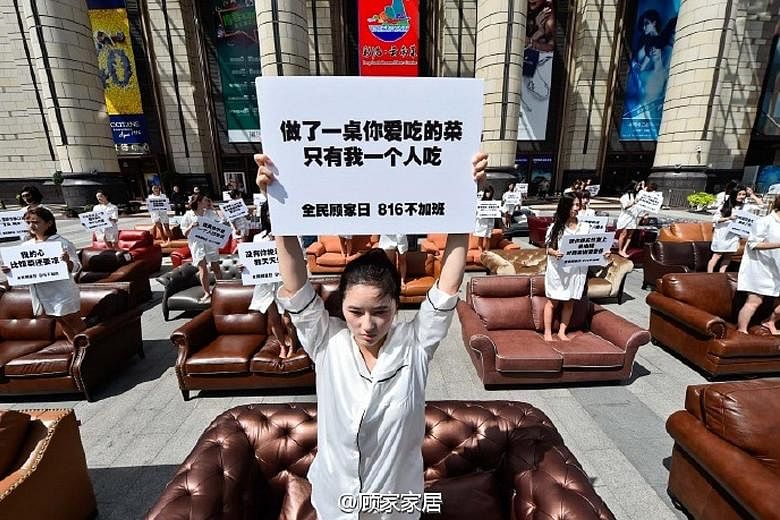BEIJING • The deaths last week of a 24-year-old engineer in Suzhou and two doctors in Xiamen have again cast the spotlight on karoshi, or death from overwork, in China.
While the phenomenon is usually associated with Japan, the Chinese have coined their own description for deaths linked to exhaustion from work - guo lao si.
In recent years, China has overtaken Japan in terms of the number of people who die from overwork every year. The figure hit 600,000 in 2014, according to some estimates. That works out to about 1,600 deaths every day.
News of workers dying after prolonged periods of overwork and sleep deprivation have become more common in the last few years, according to Chinese news websites.
The widely popular microblogging website Weibo is filled with complaints about stressful lives, and chatter about reports of people - both young and old - who have been worked to death.
In the latest cases of suspected deaths from overwork, the three men shared a common trait - they were all responsible employees who often worked overtime.
-
1,600 Estimated number of people in China who die every day from being overworked
The young engineer, identified in the Chinese media only by his surname, Yao, died last Tuesday.
The two doctors were from Zhongshan Hospital, in the southern city of Xiamen. Dr Wang Zhao, 43, died on Wednesday last week, two days after complaining of chest pains. His colleague, Dr Yin Xiaowen, 49, died a day later.
Statistics show that white-collar workers from industries such as the media, advertising, medical care and IT are most susceptible to excessive work-related stress.
Between April and June this year, at least 10 journalists or editors were reported dead. Their average age was 41.
One of them, Mr Jin Bo - an associate editor of a popular online message board similar to Reddit - died an hour after collapsing at a subway station in Beijing in June.
His friends and family members told the Beijing Times that the 34-year-old was in good health, but he was often up very late, working.
Last year, recruitment website zhaopin.com reported that more than half of 13,400 white-collar respondents in a survey do not exercise during work hours, and over two-thirds put in more than five hours of overtime a week.
China's labour laws stipulate that workers should work eight hours a day and 44 hours a week. In many firms, however, those who do not work overtime are seen as lacking ambition or slacking in their jobs.
State broadcaster CCTV said the rise of a workaholic culture is tied to fierce competition at the workplace. Many young people have to put in extra hours to vie for promotions and the next pay rise.
In Japan, the government released the findings of its first investigation into the karoshi crisis in October. It found that staff at 12 per cent of corporations put in more than 100 hours of overtime every month. Employees at a further 23 per cent of the nation's companies were only slightly better off, working 80 hours of overtime each month.
In 2014, the Japanese government introduced legislation that required the labour authorities to monitor companies and look into cases of death or ill-health caused by excessive workloads, reported Reuters news agency.
Last year, the government investigated 2,362 complaints, and issued warnings or punishments in 60 per cent of the cases.

